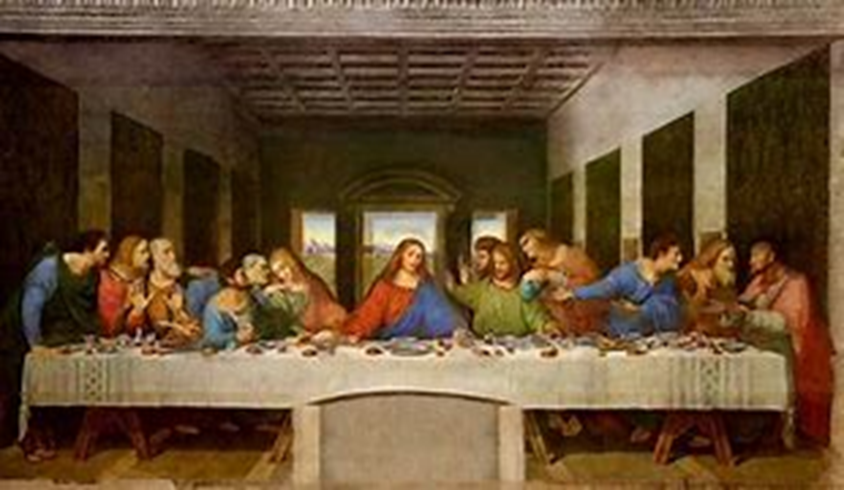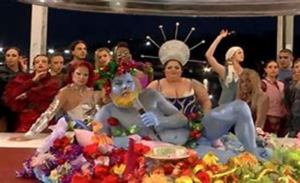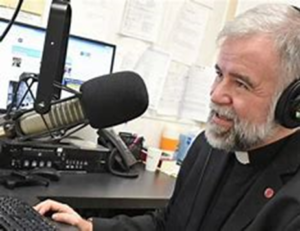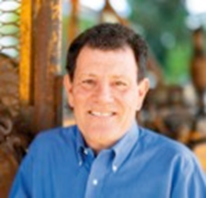[vc_row][vc_column][vc_single_image image=”949″ img_size=”full” alignment=”center”][vc_column_text]
September 2024 Newsletter
[/vc_column_text][/vc_column][/vc_row][vc_row][vc_column width=”2/3″][vc_column_text]
Advancing Christian Faith and Values,
Defending Religious Liberty for All,
Supporting Civility and the Common Good
through Preaching, Teaching, Writing,
Activism and Reasoned Conversations
www.donaldshoemakerministries.com[/vc_column_text][/vc_column][vc_column width=”1/3″][vc_single_image image=”1304″ img_size=”full” alignment=”center”][/vc_column][/vc_row][vc_row css=”.vc_custom_1598373738095{border-radius: 3px !important;}”][vc_column][vc_column_text]
LABOR DAY – September 2
A Liturgy For Those Who Are Employed

A Liturgy For Those Who Are Employed
by Douglas Kaine McKelvey
O Christ who supplies my every need, I praise you for all provisions and for the means by which they are provided.
For my current employment, in this season of life, I give you thanks. By it, may I meet my own needs, and contribute to the needs of others.
Let me work and serve in this position with mindfulness, creativity, and kindness, loving you well by loving all whom I encounter here.
Jesus, be ever present as mediator between me and my employer,
between me and my supervisors and co-workers,
and in all my dealings with others in this work,
reminding me that my treatment of them
is the strongest evidence of my affection for you.
Grant me therefore the patience to listen to others,
the humility to learn from them,
the compassion to consider their needs as my own,
and the grace to wear well the name of the Lord in this place,
remembering that I arrive here each day as an emissary of your kingdom.
And so I offer this small service to you, O Lord,
for you make no distinction between those acts that bring a person the wide praise of their peers and those unmarked acts that are accomplished in a quiet obedience without accolade. You see instead the heart, the love, and the faithful stewardship of all labors, great and small.
And so, in your loving presence, I undertake this task.
O God, grant that my heart might be ordered aright, knowing that all good service faithfully rendered is first a service rendered unto you.
Receive then this my service, that even in the midst of labors that hold no happiness in themselves, I might have increasing joy, Amen.
See “A Liturgy For Those Who Employ Others” in my September 2023 Newsletter or email me and ask for a copy. Used by Permission of Rabbit Room Press.[/vc_column_text][vc_column_text]
2024: The Re-Paganizing of the Olympics?
 Leonardo da Vinci’s “The Last Supper” (c. 1495-98)
Leonardo da Vinci’s “The Last Supper” (c. 1495-98)
Group 1 – Bartholomew, James, son of Alphaeus, and Andrew. Group 2 – Judas Iscariot, Peter, and John. Jesus.
Group 3- Thomas, James the Greater, and Philip. Group 4 – Matthew, Jude Thaddeus, and Simon the Zealot
The Olympic games began in Greece in 776 BC. In 396 AD the now-Christianized Roman Empire banned the games as a pagan ritual in direct conflict with Christianity. 1,500 years later, in 1896, the modern Olympic games began.
 I remember the fascination of reading The Iliad and The Odyssey as ancient works of literature in high school. I didn’t think I was acknowledging paganism in any way. Seems we moderns had demythologized the Greco-Roman gods. Or have we? A revival may be in the works. This was part of the opening ceremony of the Olympics:
I remember the fascination of reading The Iliad and The Odyssey as ancient works of literature in high school. I didn’t think I was acknowledging paganism in any way. Seems we moderns had demythologized the Greco-Roman gods. Or have we? A revival may be in the works. This was part of the opening ceremony of the Olympics:
The Ecumenical Patriarchate of Constantinople, which holds a primacy of honor among the Orthodox churches, condemned the drag parody of the Last Supper at the opening ceremony of the Olympics in Paris.
“Blasphemy towards God is not progress, nor is it right to insult the religious beliefs of our fellow men,” the Ecumenical Patriarchate stated. “The spontaneous expression of aversion and disapproval by the world, hopefully, has sent a sufficiently loud message to those responsible and is a source of hope to avoid similar actions in the future.”
But the director of the opening ceremony, Thomas Jolly, insisted that “The Last Supper” wasn’t the inspiration behind the scene. “Dionysus arrives at the table because he is the Greek God of celebration and that sequence is called ‘festivity.’”
 “The God of wine, which is also a French jewel and father of Sequana, the Goddess linked to the River Seine. The idea was to create a big pagan party in link with the God of Mount Olympus.”
“The God of wine, which is also a French jewel and father of Sequana, the Goddess linked to the River Seine. The idea was to create a big pagan party in link with the God of Mount Olympus.”
If the above showed disregard for the 1st Great Commandment, to love the Lord our God with all our hearts, what happened when women’s boxing violated the 2nd Great Commandment, to love our neighbor as ourselves?
 Imane Khelif of Algeria, who a year ago failed a gender eligibility test by the International Boxing Association, went on to win Gold in women’s boxing after (earlier) defeating Angela Carini of Italy who, despite her skill and physical conditioning, lasted only 46 seconds in the ring. She would later say she had never been hit so hard (in the face) as she was by a blow from Khelif.
Imane Khelif of Algeria, who a year ago failed a gender eligibility test by the International Boxing Association, went on to win Gold in women’s boxing after (earlier) defeating Angela Carini of Italy who, despite her skill and physical conditioning, lasted only 46 seconds in the ring. She would later say she had never been hit so hard (in the face) as she was by a blow from Khelif.
The Bible isn’t a manual on sports and gender issues, nor on questions about gender ambiguity or dysfunction. But it makes gender identity a foundational feature of our humanity as bearers of God’s image. “Male and female he created them” (Genesis 1:27). Who would have thought that the push for equality would trample legitimate differences, prevent women from reaching their goals in sports, and countenance men pummeling women?
Reference: What does science tell us about boxing’s gender row?, Sofia Bettiza, BBC (August 9, 2024)[/vc_column_text][vc_column_text]
“The Apostles’ Creed” (Part 8)
[I believe]
…in the holy catholic Church,
the fellowship of the saints
We continue in the third section of The Apostles’ Creed. Remember that the first section is about God the Father. The second section is about The Lord Jesus Christ. The third section begins with our confession of The Holy Spirit and then quickly moves on to other points, all stated briefly.
8A – It is fitting that confession of the Church follows right after confession of The Holy Spirit. Without the Holy Spirit there is no Church.
Sure, religious communities can go right on with rituals (now stripped of the Spirit’s presence) and messages void of the Spirit. H. Richard Niebuhr once said that the message of religious liberalism is:
A God without wrath brings people without sin into a kingdom without judgment through the ministrations of a Christ without a cross.
The Holy Spirit is not necessary for such a message and would never empower it. Such a church should be called “Ichabod” (“The glory has departed”).
Here are some of the ministries of the Spirit in relation to the church:
1. The Spirit baptizes us into the Body of Christ, which is the church
(1 Corinthians 12:13).
2. The Spirit distributes various charismatic gifts within the church as HE so determines, not as WE determine or demand (1 Corinthians 12:4-11). Pentecostals have often told us what the Spirit MUST do; non-Pentecostals may tell us what the Spirit CAN’T do. Truth is, the Spirit does what he WILLS TO DO in the church.
3. The Spirit indwells the church (Ephesians 2:21).
4. The Spirit guides and invigorates church worship (Ephesians 5:18-20).
5. The Spirit helps guard the truth of the Gospel (2 Timothy 1:14).
8B – What are the “Marks” of the true Church?
Protestants speak of different “marks” of the true church. Some reduce this to trivial things like calling your church by just the right name. More substantially, one common list (from Reformed, or Presbyterian theology) is that a true church will (1) teach the Bible as God’s Word, (2) observe the Sacraments, and (3) discipline its members. Good points!
The Apostles’ Creed gives us three marks of the true Church.
1) The Church is “One”
This mark draws from the teaching of Jesus: “I pray for those who will believe in me…that all of them may be one, Father, just as you are in me and I am in you. May they also be in us so that the world may believe that you have sent me.
– Jesus (John 17:20-21)
• This is more than a spiritual “oneness” which no one can see.
• It is more than an organizational “oneness”.
• It is more than an eventual oneness—together in heaven.
• And for sure it is not a “oneness” over non-gospel issues (like political or racial or cultural or social identity, etc.). These “unities” actually divide Christians and make things other than “The Gospel” the gospel.
No, Jesus said this “oneness” would be observed by the world of non-believers, who would draw right conclusions about God’s gift of his Son when they see genuine Christian oneness in life and action. If non-Christians walk into our church gatherings, would they see a true oneness that gives them positive thoughts about God? Or would they see _____ (fill in the blank)?
2) The Church is “Holy”
“The holiness that marks the church is both a divine gift and an urgent task,” says Michael Bird in his excellent book Evangelical Theology. He’s talking about moral, ethical holiness that separates us from evil, which we pray for when we pray, “Lead us not into temptation, but deliver us from evil.”
Sad are the occasions, big and small, when the world of non-Christians observes the Church and wonders where the “Holy” has gone!
3) The Church is “Catholic” – we better make this a separate point!
8C – Wait a minute! I’m a Protestant! How can I say, “One holy catholic church”?
Several years ago my church got new hymnbooks. They had a page with “The Apostles’ Creed”. And that page changed this phrase to “One holy Christian church.” What’s going on? Well first, of course it’s correct to say “Christian” church. We are that and it should mean a lot to us.
But that’s not what the historical Creed says! Deep and wide and long in Christianity stands the confession, “One holy catholic church.” Small “c”.
The word “catholic” means “universal.” It comes from the Greek word “kathalou” – “entire, according to the whole.” So this is a confession of the togetherness of all true Christians and Christian communities everywhere, now and throughout history and into eternity.
“The church is not restricted by geography, ethnicity, gender, class or status. It is a universal assembly that is made up of people from every tribe, language, culture, and place.” – Michael Bird
Revelation 5:9 – “With your blood you have purchased people from every tribe and language and people and nation.”
Please excuse me if quoting from Wikipedia is a problem, but this is well said:
Applied to the Church, the adjective “catholic” means that in the Church the wholeness of the Christian faith, full and complete, all-embracing, and with nothing lacking, is proclaimed to all people without excluding any part of the faith or any class or group of people. The adjective can be applied not only to the Church as spread throughout the world but also to each local manifestation of the Church, in each of which nothing essential is lacking for it to be the genuine body of Christ.
8D – What does “Apostolic” mean in the Nicene Creed?
The Nicene Creed adds “apostolic” to “one holy catholic…church.”
Ephesians 2:20 teaches us that the church is “built on the foundation of the apostles and prophets, with Christ Jesus himself as the chief cornerstone.” So the apostolic office played a critical role in the founding of the Christian church.
One of the commendations of the first Christian community in Jerusalem is that “they continued steadfastly in the apostles’ doctrine” (Acts 2:42). The apostles were selected by Jesus, taught by Jesus, observed Jesus, and promised by Jesus that the Holy Spirit would remind them of everything He had said (John 14:26). Being, then, an “apostolic” church means being faithful to the apostolic message about Jesus—who He was, what He did, what He taught. This deposit of truth is to be guarded and perpetuated by the church of all ages. “Guard the good deposit that was entrusted to you” (2 Timothy 1:14).
A doctrine worth our strong embrace is grounded in apostolic teaching and broadly held throughout the orthodox Christian world. Any so-called “Bible prophecy insight” [or other peculiar doctrine] that pops up late in time within a narrow segment of the Christian community fails these tests.
–From my essay The Second Coming of Christ and the Rapture of the Church
[Note: the issue of “apostolic succession” enters this word as well, and I don’t deal with that here. Also, it is important to note that The Apostle Paul’s apostolic credentials put him on a par with “the Twelve” but did not make him one of “the Twelve.” And the word “apostles” seems to include a number of believers on whom the Holy Spirit bestowed this charismatic missionary/church-planting gift. I also don’t deal here with the question of modern apostleship, which can lead to quite a debate—and lots of problems too.]
8E – “The communion of the saints”
This confession has both horizontal and vertical aspects. Horizontally, it refers to a bond of truth and love with all Christians who live (and sometimes languish in persecution) everywhere on earth. Therefore we sense a special bond with believers everywhere. And we have a call to be of service to all believers here and elsewhere, especially those facing suffering and persecution for their faith throughout the world.
For years I have said that prayer and care for The Persecuted Church is a great omission in many missionary circles today.
Second, this confession has a vertical aspect: our thanksgiving for and union with the saints who have gone on before us into Jesus’ presence.
Yet she on earth hath union with God the Three in One,
And mystic sweet communion with those whose rest is won.
– “The Church’s One Foundation” by Samuel J. Stone (1866)
The greatest hymn to sing about the church “below” and the saints “above” is, in my opinion, “For All the Saints, Who from Their Labor Rest” by William Walsham How (1864). Be sure your church sings it around “All Saints Day”!
O blest communion, fellowship divine!
We feebly struggle, they in glory shine;
Yet all are one in Thee, for all are Thine.
Alleluia, Alleluia!
I conclude our examination of this topic in The Apostles’ Creed with a warning about the church in our present world.
“The Western world has changed; [it is] very quickly becoming post-Christian and radically secular. The church is no longer the chaplain for Christendom; it is now a recalcitrant resistance to the secularizing agenda.” – Michael Bird
Our calling more than ever is to be salt and light in our world, offer a radical alternative to destructive establishments and trends wherever found.
A first-century critic of Christianity had this to say when Paul’s apostolic mission team reached the City of Thessalonica: “These men who have turned the world upside down have come here also” (Acts 17:6). It was not a compliment. But it is always a witness to be sought by the “one holy catholic and apostolic church.”[/vc_column_text][vc_row_inner css=”.vc_custom_1724954989199{background-color: #dd9933 !important;}”][vc_column_inner][vc_column_text]Can I be a part of the universal church without joining a local congregation?
Sorry, no (rare exceptions)! That’s a false separation. You can’t obey the many biblical commands or follow biblical examples without meaningful involvement with a local body of believers that displays the “marks” of the church. It’s like wanting to be a firefighter in the City of Long Beach but then refusing assignment to one of its 24 local fire stations.[/vc_column_text][/vc_column_inner][/vc_row_inner][/vc_column][/vc_row][vc_row css=”.vc_custom_1598373738095{border-radius: 3px !important;}”][vc_column][vc_column_text]
Are Churches Preparing Their People for
“The Coming Distress”?
“You have not yet resisted unto blood” – Hebrews 12:4
 Theologian Robert McTeigue, SJ, considers the state of the contemporary church and answers…
Theologian Robert McTeigue, SJ, considers the state of the contemporary church and answers…
I’d have to say no – for a variety of reasons. First, serious talk about serious topics would work against “Father Cheerful’s” commitment to forming “a welcoming community”; trying to prepare people for martyrdom would fail to “meet people where they’re at.”
What would happen to the “Typicalians” [members of the typical lukewarm church] if they ever had to face or surmount aggressive or even kinetic persecution? What if “bird flu” suddenly makes worship a “non-essential service” again? What if a federal agency suspects that “St. Typical’s” is a hotbed of “far-right…Christian nationalist domestic terrorism”?
The dearth of sound teaching and the trivialization of worship at “St. Typical’s” will not ready anyone for [martyrdom, whatever its form]. The bodies, minds, and hearts of the “Typicalians” are, humanly speaking, unprepared to receive the graces necessary for any form of costly fidelity—whether the cost of fidelity is paid all at once in blood or paid over decades of hidden yet heroic daily duty. “Fr. Cheerful” has made clear that he will not offer the necessary preparation; the “Typicalians” have made clear that they will not receive it.
Here I can’t help but recall the observation of A. W. Tozer: “A church that can’t worship must be entertained; and people who can’t lead a church to worship must provide entertainment.” “Fr. Cheerful” [has] agreed to provide the entertainment.
– Robert McTeigue, Crisis magazine (on line), August 12, 2024
 Nickolas Kristof—“Progressive” No More
Nickolas Kristof—“Progressive” No More
As I’d read Nickolas Kristof’s columns in the NY Times I came to regard him as a “Realist Liberal.” Not merely theoretical, he’s seen the world in real time from the streets and trenches.
Now Edward Felsenthal has reflected in the NY Times (May 12, 2024) about why Kristof no longer considers himself to be a political progressive.
Felsenthal: “You write that ‘as progressivism became an ideology of the educated, it distanced itself from the people it nominally championed’ and [you] criticize what you call a progressive impulse to ‘address problems by revising terminology.’ Do you consider yourself a progressive?”
Kristof: “No…five or ten years ago I might have. But the metric of progressivism should be progress. And in the West Coast cities, where progressives have dominated policymaking, we see regress.
“And I just think we can’t blame this on Republicans. Because there aren’t any in Portland. This is our mess. We created it. Seeing the challenges in Portland, Seattle, San Francisco, Los Angeles, have made me more wary of progressivism. Outcomes are what matter. And our outcomes on the West coast cities are not good.”[/vc_column_text][/vc_column][/vc_row][vc_row][vc_column][vc_column_text]
www.donaldshoemakerministries.com
Don has been a member of the clergy in the Long Beach, California area since 1970. He has served as Pastor Emeritus of Grace Community Church of Seal Beach (where he was senior pastor 1984-2012) and as Senior Chaplain of the Seal Beach Police Department (2001-2024). He previously was an assistant professor of Biblical Studies at Biola University (1976-84) and chaired the Social Concerns Committee in the Fellowship of Grace Brethren Churches from 1985 to 2019.
His graduate work includes a Master of Divinity magna cum laude from Grace Theological Seminary, a Master of Theology from Fuller Theological Seminary with a concentration in Christian ethics, and a Doctor of Ministry from American Baptist Seminary of the West (now Berkeley School of Theology) with a concentration on the Charismatic Movement. His law school studies included a course on the First Amendment.
Don and his wife Mary have been married for 58 years. They have two children and six grandchildren, plus now a grandson-in-law. They recently moved to Temecula, California.
© 2024 Donald P. Shoemaker
[/vc_column_text][/vc_column][/vc_row]

